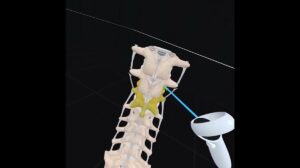NEW YORK (Reuters Health) – High pregnancy rates can be achieved after in vitro fertilization via intracytoplasmic sperm injection (ICSI) using sperm cryopreserved before treatment of malignancy in men, according to a report in the September issue of Fertility and Sterility.
“ICSI has allowed effective treatment of infertility compared with before in vitro fertilization (IVF), when we had to pool many samples to get enough sperm for successful fertilization,” Dr. Zev Rosenwaks told Reuters Health.
Dr. Rosenwaks from Weill Cornell Medical College/New York Presbyterian Hospital, New York and colleagues recount their 10-year experience with ICSI using semen cryobanked from 118 men before treatment for a variety of malignant diseases.
At least one abnormal semen parameter was present in 43% of the men before cancer treatment, the authors report. The median total motile sperm count was 52.8 million, but 20% of the men had a total motile sperm count of less than 5 million.
Semen parameters were better in men with lymphomas and all other systemic malignancies than in those with testicular or prostate carcinoma.
After treatment, 77.8% of the men with available data were azoospermic.
The median sperm motility of the cryopreserved samples after thawing was 14.2%.
The fertilization rate using ICSI was 77.6%, the researchers report, and the clinical pregnancy rate per ovum pickup was 56.8%, resulting ultimately in 85 deliveries and 126 children. The overall delivery rate per ovum pickup was 50.3%.
“All physicians dealing with young men facing malignancy should encourage them to freeze sperm,” Dr. Rosenwaks said. “There is now an opportunity to achieve pregnancies with their own sperm.”
Reference:
Fertil Steril 2008;90:557-563.




